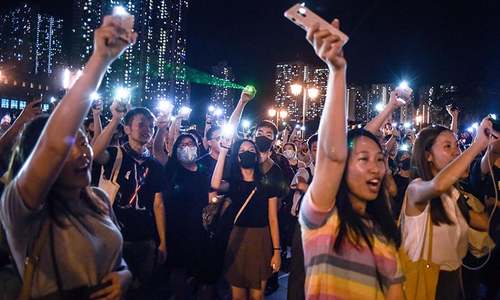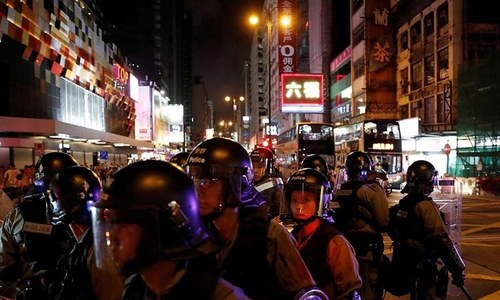Hong Kong visitor arrivals plunged nearly 40% in August from a year earlier, deepening from July’s 5 per cent fall, the finance secretary said as sometimes violent anti-government protests take a rising toll on the city’s tourism, retail and hotel businesses.
Hotels in some locations had seen occupancy rates drop to about half, while room rates plunged 40-70pc, Paul Chan said, citing industry sources.
"The most worrying thing is that it does not seem that the road ahead is easily going to turn any better," Chan said in his blog on Sunday.
July tourist arrivals fell 4.8pc on the year, according to the Hong Kong Tourism Board, the first annual decline since January 2018 and the biggest percentage drop since August 2016.
Retail sales in July sank by the most since February 2016 amid the anti-government protests that have gripped the Chinese-ruled city for more than three months.
Chan said the social unrest had severely damaged the image of Hong Kong as a safe international city and a hub for trade, aviation and finance.
On Monday, hundreds of uniformed school students formed human chains in districts across Hong Kong in support of anti-government protesters after another weekend of clashes in the Chinese-ruled city. Metro stations that had closed on Sunday amid confrontations reopened.
Chan said that repeated violent conflicts, the blocking of roads, underground railways and the airport had obstructed people from going to work and school and led to the cancellation or rescheduling of “many” international conferences and exhibitions.
Total export fell 5.7% year on year in July, while re-export value to the United States from China via Hong Kong declined 15.2% from a year earlier, he said.
Global credit rating agency Fitch Ratings on Friday downgraded Hong Kong’s long-term foreign currency issuer default rating to “AA” from “AA+”, and said it expects public discontent will likely persist.
“Fitch’s view is purely speculative, lacking justification,” Chan said.














































